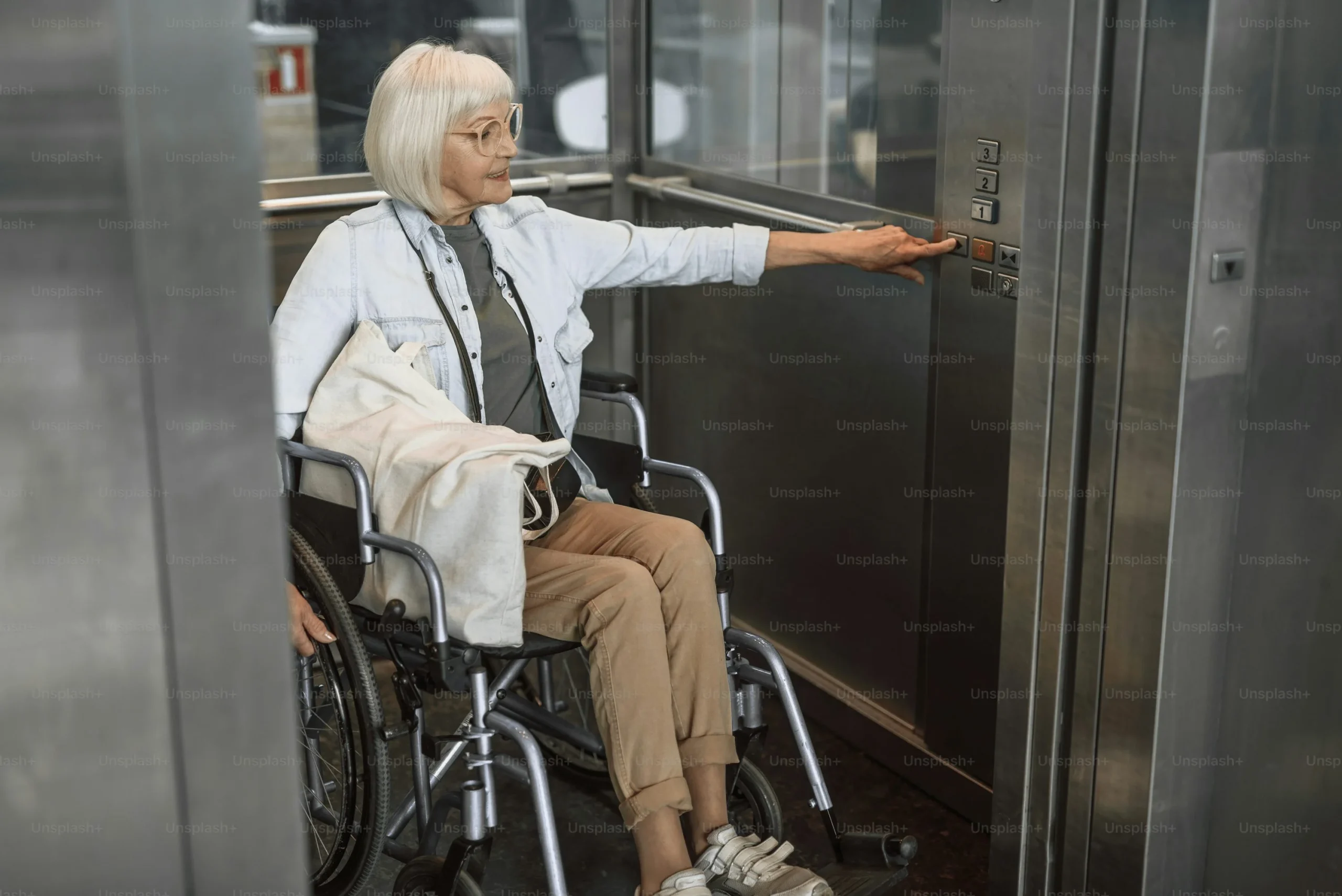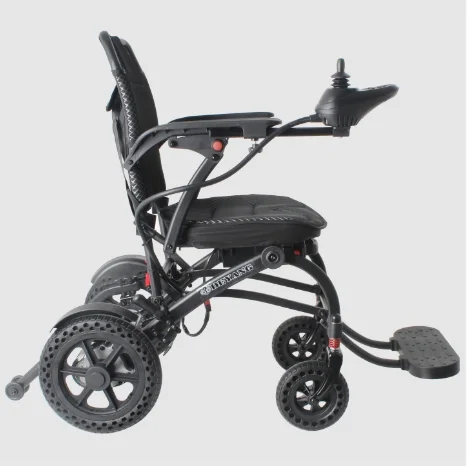What Key Factors Define Automated Wheelchair for Clinical Use?
Time : Aug 31, 2025 View : 1,826
Automated wheelchairs do more than help patients move in clinical settings—they’re key medical devices that improve safety, comfort, and independence. For healthcare folks choosing one, it’s about matching the patient’s needs with the chair’s performance and making sure it follows all the regulatory rules. From advanced drive systems to smart tech integration, models like XUNYU’s XY-D13T deliver tailored solutions for diverse clinical demands. This article breaks down the essential factors that make these wheelchairs effective in supporting both patients and caregivers.

Key Considerations for Selecting Automated Wheelchairs
Choosing a power wheelchair for hospital use means getting into the nitty-gritty of what each patient needs, how the chair performs, and if it lines up with healthcare rules.
Medical Conditions and Mobility Needs
Every patient’s got their own mobility struggles, from neuromuscular issues to spinal cord injuries. A good automated wheelchair has to handle these by giving smooth control, steady movement, and solid support when folks are getting in or out.
The device should also minimize the risk of injury during independent or assisted navigation. For example, “Do not go up or down stairs without somebody’s help otherwise it will cause dangers to the user and damage to the wheelchair.” This highlights why powered systems must be designed to avoid hazardous terrains unless clinically supervised.
Patient Safety and Stability Standards
Safety is paramount in clinical environments. Automated wheelchairs must include anti-tip mechanisms, reliable braking systems, and durable construction to prevent accidents. “Please grasp the fixed connection part of the wheelchair, not the active part such as armrests and foot treadle devices, when moving the wheelchair.” Such guidance underscores how structural integrity directly affects user safety during transfers or repositioning.
Customization for Postural Support
Choosing a power wheelchair for hospital use isn’t just about grabbing the flashiest model. You’ve got to think about what each patient actually needs, how the chair handles day-to-day, and whether it ticks all the boxes for healthcare rules. These chairs aren’t just for getting around—they’re serious medical gear that has to meet strict clinical and regulatory standards. Hospitals have to weigh safety, comfort, how well it links up with other devices, and even long-term costs before signing off on a purchase.
Technical Specifications and Performance Metrics
Beyond clinical fit, technical performance defines long-term satisfaction for both patients and caregivers. A balance between intuitive control systems and mechanical reliability is essential.
Drive Systems and Control Interfaces
Drive systems need to move smoothly over different surfaces and keep vibrations low. Mid-wheel setups are great for tight turns, especially indoors. The controls—whether a joystick or something else—gotta match the user’s hand skills. For example, folks with shaky hands might do better with sip-and-puff or head array controls.
Battery Life and Charging Efficiency
A solid battery keeps the wheelchair going all day without needing constant recharges. Top-notch clinical models can go longer on a single charge and have quick-charging options to cut down on wait times during therapy or check-ups.
Integration with Assistive Technologies
In today’s healthcare world, where digital tools are everywhere, automated wheelchairs gotta work as part of a bigger system, not just stand-alone gadgets. Hooking up with smart home setups lets users control stuff like doors, lights, or even their TV right from the wheelchair. This gives folks in assisted living a lot more freedom. Features like Bluetooth or Wi-Fi let clinicians keep tabs on a patient’s vitals or how they’re using the chair in real time. It’s super helpful for catching issues early and works great for remote rehab programs, which are getting more popular.
Ergonomics and Comfort Considerations
Comfort is not a luxury—it’s a clinical necessity that influences user compliance and health outcomes over time.
Power wheelchairs should feature multi-axis adjustability in seat height, tilt-in-space functions, recline angles, and leg rest elevation to accommodate therapeutic positioning needs throughout the day. Whether navigating hospital corridors or outdoor pathways between buildings, suspension systems play a vital role in shock absorption. Effective dampening reduces fatigue and protects fragile skeletal structures during transit.
Compliance with Clinical Regulations and Standards
Procurement decisions must align with international safety benchmarks to ensure legal compliance and patient protection. Devices used in healthcare facilities should meet ISO 7176 standards for electric wheelchairs along with FDA Class II device registration where applicable—ensuring adherence to rigorous testing protocols regarding durability, stability, electromagnetic compatibility, etc. Cleanability is essential in shared-use environments such as rehabilitation centers. Surfaces must resist microbial buildup while allowing easy disinfection without degrading material quality over time.
XUNYU’s Solutions for Clinical Power Mobility Needs
Looking for a manufacturer that nails all these clinical needs with top-notch engineering? XUNYU’s got you covered with wheelchairs built just for healthcare pros. With tons of experience in medical mobility tech, XUNYU blends safety-focused design with comfort that puts patients first across its lineup of automated wheelchairs.

Take their XY-D13T model—it’s designed for tough hospital settings. It’s got fancy posture adjustments and a battery that lasts all day, perfect for hospitals or home care.
Evaluation Criteria for Procurement Decisions in Clinics
When evaluating which power wheelchair best fits your facility’s needs, consider both upfront investment value as well as downstream serviceability.
Cost-Efficiency Over Lifecycle
Initial purchase price is only one factor—maintenance frequency, spare part availability, and battery replacement intervals all impact the total cost of ownership over 5-10 years of service life.
Technical Support and Maintenance Services from XUNYU
XUNYU distinguishes itself through responsive after-sales support, including technician training modules and rapid parts logistics—ensuring minimal disruption when servicing units like the XY-D13T.
User Training and Clinician Integration Protocols
Proper onboarding ensures that both patients and caregivers can fully leverage every function safely from day one.
Onboarding Programs by XUNYU for Healthcare Providers
XUNYU provides structured training programs aimed at clinicians—including hands-on workshops on configuration adjustments tailored to specific diagnoses—as well as troubleshooting protocols minimizing reliance on external technicians during emergencies.
Patient Education Tools Included with XUNYU Devices
Each unit ships with multilingual manuals featuring illustrated guides on safe operation practices such as “Please do not change the seat position when you lean back”. These resources reduce misuse risks while empowering users through informed independence.
FAQ
Q: What type of drive system is most suitable for indoor clinical environments?
A: Mid-wheel drive systems are often preferred due to their compact turning radius which allows better maneuverability in tight hospital spaces.
Q: How do I ensure an automated wheelchair meets infection control requirements?
A: Choose models built with antimicrobial materials or smooth-surface designs that allow thorough disinfection without damaging upholstery or electronics.
Q: What makes XY-D13T ideal for clinical use?
A: Its customizable seating system supports therapeutic positioning while offering reliable battery performance suited for full-day operation across varied care settings.


